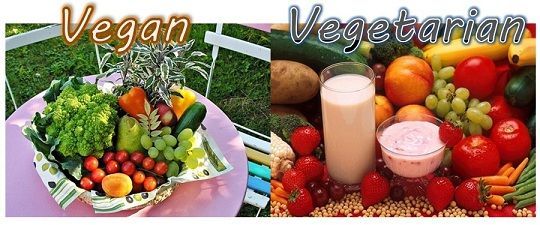Vegan vs. Vegetarian: Which Diet Is Right for You?
Choosing a diet that aligns with your beliefs and lifestyle is essential for maintaining good health and overall well-being. As more people consider adopting plant-based diets, two popular options often pop up – veganism and vegetarianism. While both diets exclude meat, there are significant differences between them. This article aims to explore these distinctions and help you decide whether veganism or vegetarianism is the right fit for you.
Veganism: A Holistic Lifestyle
Veganism is a way of life that extends beyond dietary preferences. It is a philosophy rooted in compassion for animals and the environment. Vegans avoid consuming any animal-derived products, including meat, poultry, fish, eggs, dairy, and even honey. Additionally, vegans also abstain from using or wearing products made from animals or involving animal testing, such as leather, fur, and cosmetics.
The vegan diet primarily consists of fruits, vegetables, legumes, grains, nuts, and seeds. It is rich in essential nutrients, vitamins, and minerals. However, as vegans eliminate all animal products, they must be mindful of getting enough vitamin B12, iron, zinc, calcium, and omega-3 fatty acids through plant-based sources or supplements.
Health Benefits of Veganism
Veganism offers numerous health benefits. Studies have shown that vegans tend to have lower body mass indexes (BMIs), reduced risk of heart disease, lower blood pressure, and lower cholesterol levels. Moreover, a vegan diet can also reduce the risk of developing certain types of cancer and may help in managing diabetes.
Environmental Impact
Veganism has gained popularity due to its positive impact on the environment. Animal agriculture is a significant contributor to greenhouse gas emissions, deforestation, and pollution. By adopting a vegan lifestyle, individuals can significantly decrease their carbon footprint, conserve water resources, and contribute to the preservation of ecosystems.
Vegetarianism: A Flexible Approach
Vegetarianism is another plant-based diet that excludes meat but allows certain animal-derived products such as eggs, dairy, and honey. There are different types of vegetarian diets, including lacto-vegetarian (allows dairy), ovo-vegetarian (allows eggs), and lacto-ovo vegetarian (allows both dairy and eggs). These diets are more flexible than veganism, making them easier to adopt for some individuals due to the wider range of food options available.
The vegetarian diet emphasizes plant-based foods, including fruits, vegetables, legumes, grains, nuts, and seeds, similar to veganism. It provides a rich source of fiber, vitamins, and minerals. However, like vegans, vegetarians also need to ensure they obtain sufficient nutrients such as vitamin B12, iron, and omega-3 fatty acids, especially if avoiding certain animal products.
Health Benefits of Vegetarianism
Vegetarianism offers many similar health benefits to veganism, especially when compared to a typical Western diet. Vegetarians generally have a lower risk of obesity, heart disease, high blood pressure, and certain types of cancer. By incorporating a variety of plant-based foods, vegetarians can meet their nutritional needs effectively.
Ethical and Environmental Considerations
While vegetarianism doesn’t go to the same extent as veganism in terms of ethical considerations, it still promotes compassion towards animals by avoiding meat consumption. Moreover, reducing meat consumption has substantial environmental benefits, including less land use, decreased water pollution, and reduced greenhouse gas emissions.
Choosing the Right Diet for You
Deciding whether veganism or vegetarianism is the right diet for you depends on various factors, including personal preferences, ethical beliefs, health considerations, and the ability to sustain the chosen lifestyle. It is vital to consult with a healthcare professional, nutritionist, or dietitian to ensure you receive adequate nutrition and make informed decisions.
It’s worth noting that transitioning to either diet can be challenging for some individuals. It is crucial to educate yourself about proper nutrition, explore new recipes, and find support networks to help you along the way. Ultimately, the goal is to adopt a diet that promotes your well-being while aligning with your values and beliefs.
Conclusion
Whether you choose a vegan or vegetarian diet, both options can offer significant health benefits and reduce our impact on the environment. Veganism takes a more stringent approach by eliminating all animal-derived products, including animal by-products in daily life. On the other hand, vegetarianism allows for more flexibility, permitting certain animal products, making the transition easier for some individuals. It’s important to remember that adopting a plant-based lifestyle is a personal choice that should suit your needs, beliefs, and overall lifestyle.


